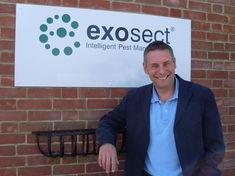
A new bio-conventional sector is emerging that is blurring the lines between products using conventional chemistry and biological controls to combat pest and disease in crops, a leading biotechnologist and agri-business development manager has said.
Martin Brown, ceo of Exosect told delegates at the prestigious CropWorld North America convention last week that the blurring of these lines is helping create sustainable solutions for food production. Speaking at the event, Brown remarked on the encouraging signs that the industry is following the path the pharmaceutical sector struck out on 10 years ago in adopting an open-innovation business model and cross-collaboration across the four main pillars of pest and disease control: biological, conventional, GM and seed-treatment. “The genetic modification strategy is not the silver bullet it was thought it could be as there is public resistance to it,” said Brown. “A lot of innovation, instead of drawing vertically from just one pillar, could cut across pillars horizontally, for example using biological and conventional approaches to create a new solution.”
However, Brown warned that this is still not enough to foster innovation as quickly as could be achieved and suggested that there is a need for a virtual industry platform to facilitate industry collaboration and innovation. Brown put to the audience that in order to meet the challenge of food security whilst using the planet’s resources sustainably, the crop protection industry needs to work harder to foster innovation and to do this it needs to further open the channels of communication. Brown advocates forums similar to yet2.com that seek to bring together buyers and sellers of technology.
“Collectively we need to work harder. It has taken Exosect a number of years to develop relationships across the industry and it’s through these relationships that we have learned the true scope of our technology,” said Brown. “There is a significant number of emerging innovative companies that are only just beginning to understand the full potential of what their technology can achieve. The industry needs to nurture these young companies as they hold to key to advancing innovation and developing products that feed the planet but do not literally cost us the earth.”